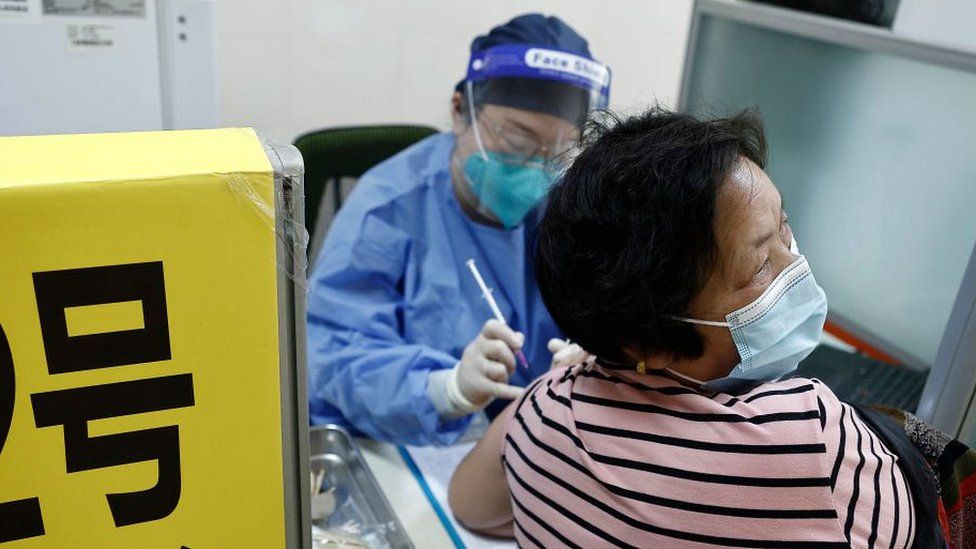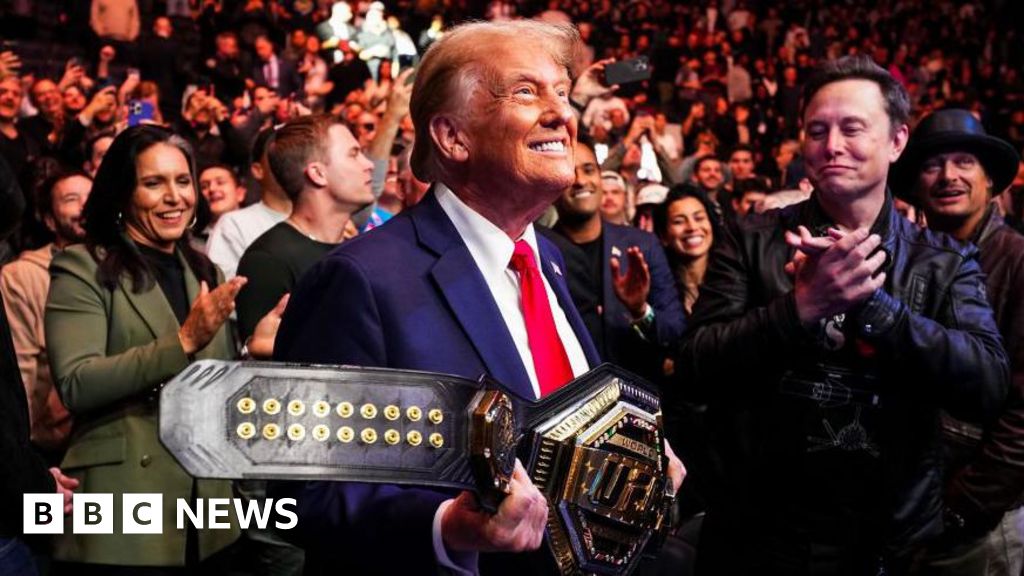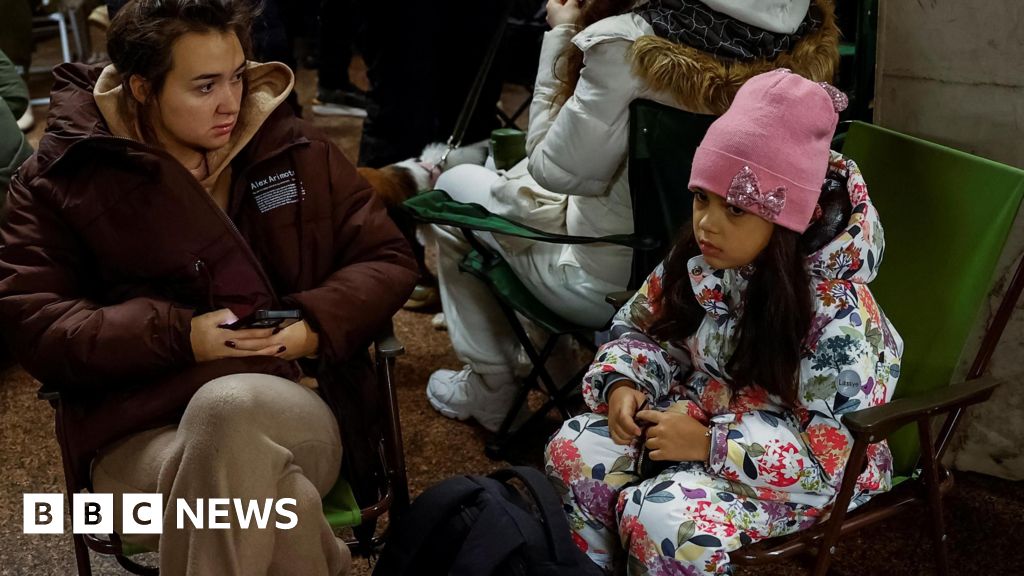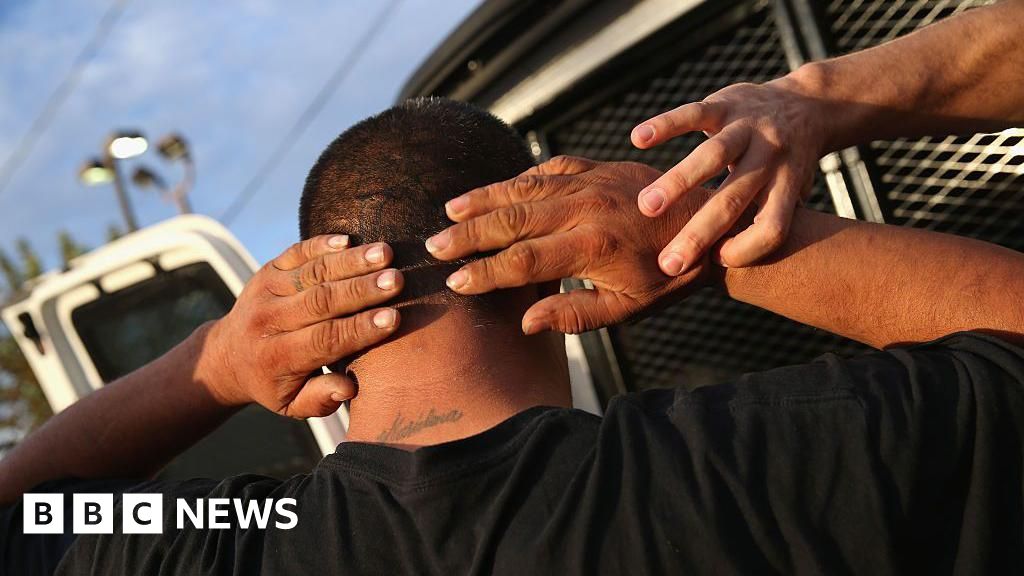ARTICLE AD BOX
 Image source, Getty Images
Image source, Getty Images
By Reality Check team
BBC News
Faced with unprecedented protests against Covid restrictions, the Chinese authorities have said they are ramping up their vaccination campaign among the elderly.
The relatively low rate of vaccination for older people is a major obstacle to China relaxing its zero-Covid strategy.
How many older people are vaccinated?
China has acknowledged it has relatively low rates of Covid vaccination among the elderly, who are most likely to get seriously ill or die from the virus compared with younger age groups.
In April this year, official data showed that only about 20% of over-80s had received two jabs plus a booster, while under 50% of the 70-79 age group fell into this category.
The latest figures from the Chinese authorities, released as lockdown protests erupted across the country, suggest a marked jump in these over-80s vaccination rates to about 40% fully vaccinated with a booster.
These Chinese vaccination rates for the elderly are significantly lower than, for example, those in the US and UK.
Figures from the UK in November indicate that about 80% of people aged 80 or above (living in England) had received a booster jab in the previous three months.
It is also reported to have set a goal of getting 90% of the over-80s to either complete the initial two-dose vaccination course or get a booster jab by the end of January.
Why are more older people not vaccinated?
The head of China's Covid expert panel, Prof Liang Wannian, has told the BBC that vaccine hesitancy among the elderly is one issue.
"Many old people have underlying diseases. They reckon it won't be safe to get vaccinated. But in fact, it is safe." he said.
Unlike in other countries which targeted the elderly first, China prioritised the working-age population when it started its vaccine rollout at the end of 2020.
Image source, Reuters
Image caption,Lockdown in Beijing: Restrictions have become increasingly unpopular
It also tested its vaccines outside China in countries with much younger populations - and initially told its own elderly population there was not enough data on the effectiveness and safety of the vaccines to recommend they receive them.
Community health infrastructure is also vital to vaccine rollouts, says Prof George Liu, of La Trobe University in Melbourne. He says this is lacking for the elderly in China.
"Unlike planned immunisation for children, community health facilities don't have a full name list and schedules for the elderly, and they don't have an existing process to ensure proper vaccination coverage for them."
Faith in locally-made vaccines has also been dented by a series of health scandals in recent years. These include safety issues and production standards for rabies jabs, as well as for diphtheria and tetanus.
Are Chinese-made vaccines effective?
China has developed and produced its own vaccines, which use an inactivated form of the virus to train the body to fight the whole virus.
Image source, Getty Images
While effective, these are not quite as good as the mRNA vaccines used elsewhere in the world, which home in on the key part of the virus which infects the body's cells.
Research suggests that two doses of the Pfizer/BioNTech mRNA vaccine would give 90% protection against serious illness or death, but it is 70% for two doses of Sinovac, one of the most widely-used Chinese vaccines.
And long periods of lockdown in China have meant that there has been far less mixing of people.
This has meant that even for those who have been vaccinated, there has been less exposure to the virus, and so less benefit from "hybrid immunity" - that is protection through a combination of vaccination and coming into contact with the virus itself.
"It's this wall of protection built up... through natural exposure and effective vaccines, that have made Covid something most of the rest of the world is now willing to live with," says BBC Health and Disinformation reporter Rachel Schraer.
Add to that the fact that new variants of Omicron have emerged, which spread even among the vaccinated, and it makes the prospect of eliminating the virus even more unlikely.
Image source, Getty Images
Image caption,A vaccine production plant in Shanghai
Why has China not used Western vaccines?
In the early stages of vaccine rollout during the pandemic, China made great play about its own production efforts.
So it is not surprising that it has been reluctant to use vaccines developed elsewhere.
Germany has urged China to consider using Western-developed mRNA vaccines. These are currently difficult to obtain in China, and only made available to foreign residents.
China is believed to be developing its own vaccine using mRNA vaccine technology, but it is not clear when this might be available.
Additional reporting by Wanyuan Song

 1 year ago
16
1 year ago
16








 English (US)
English (US)